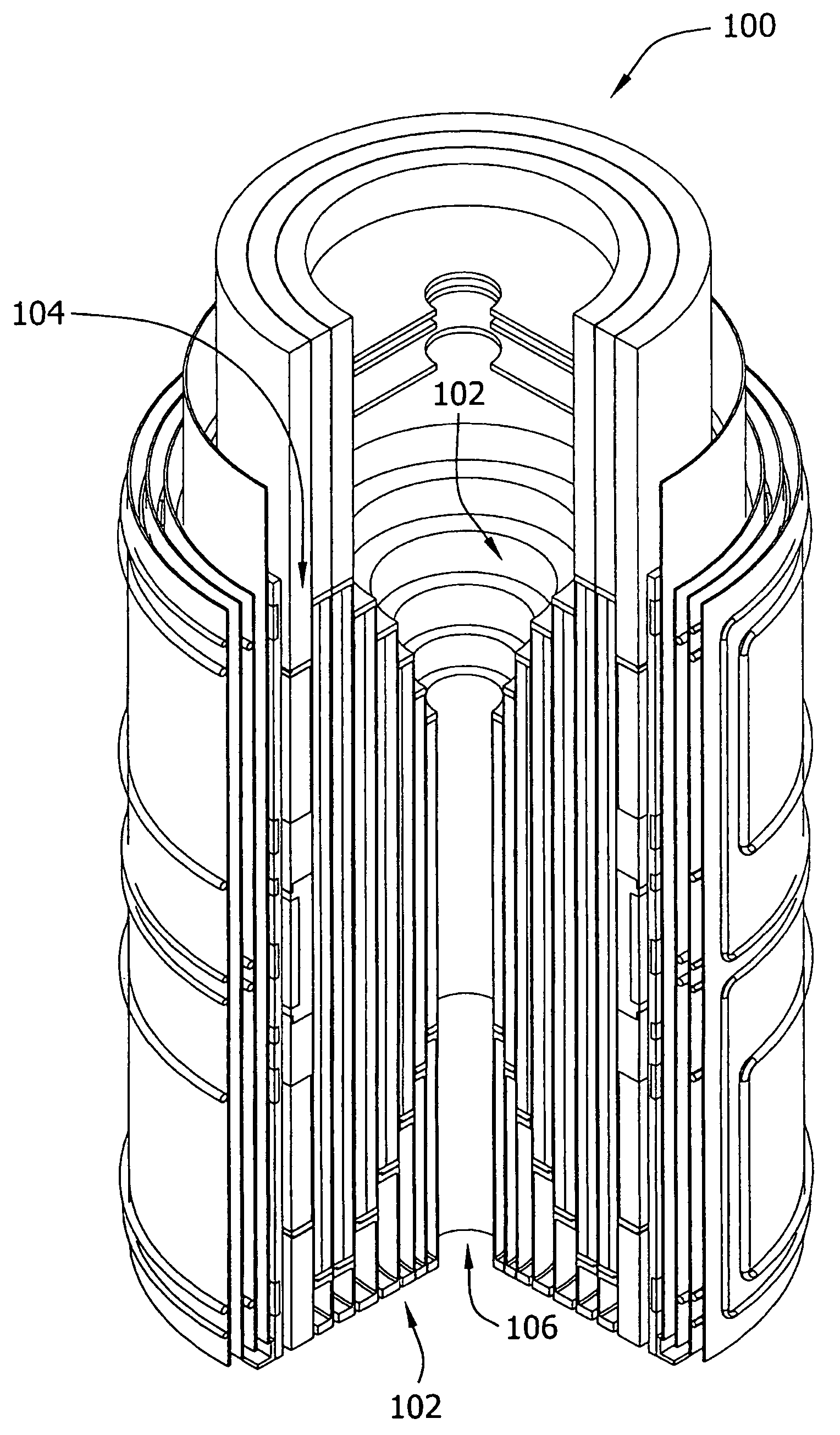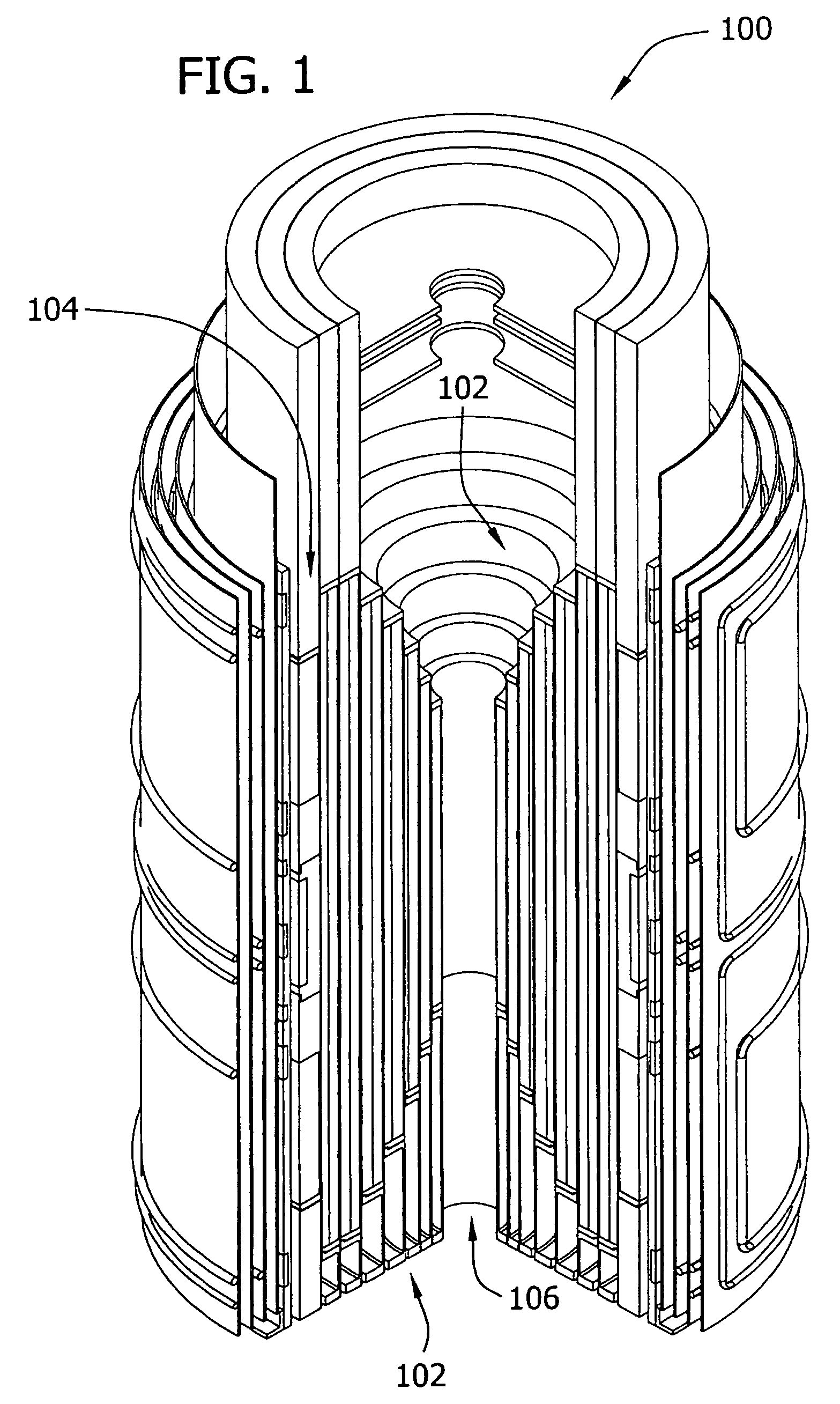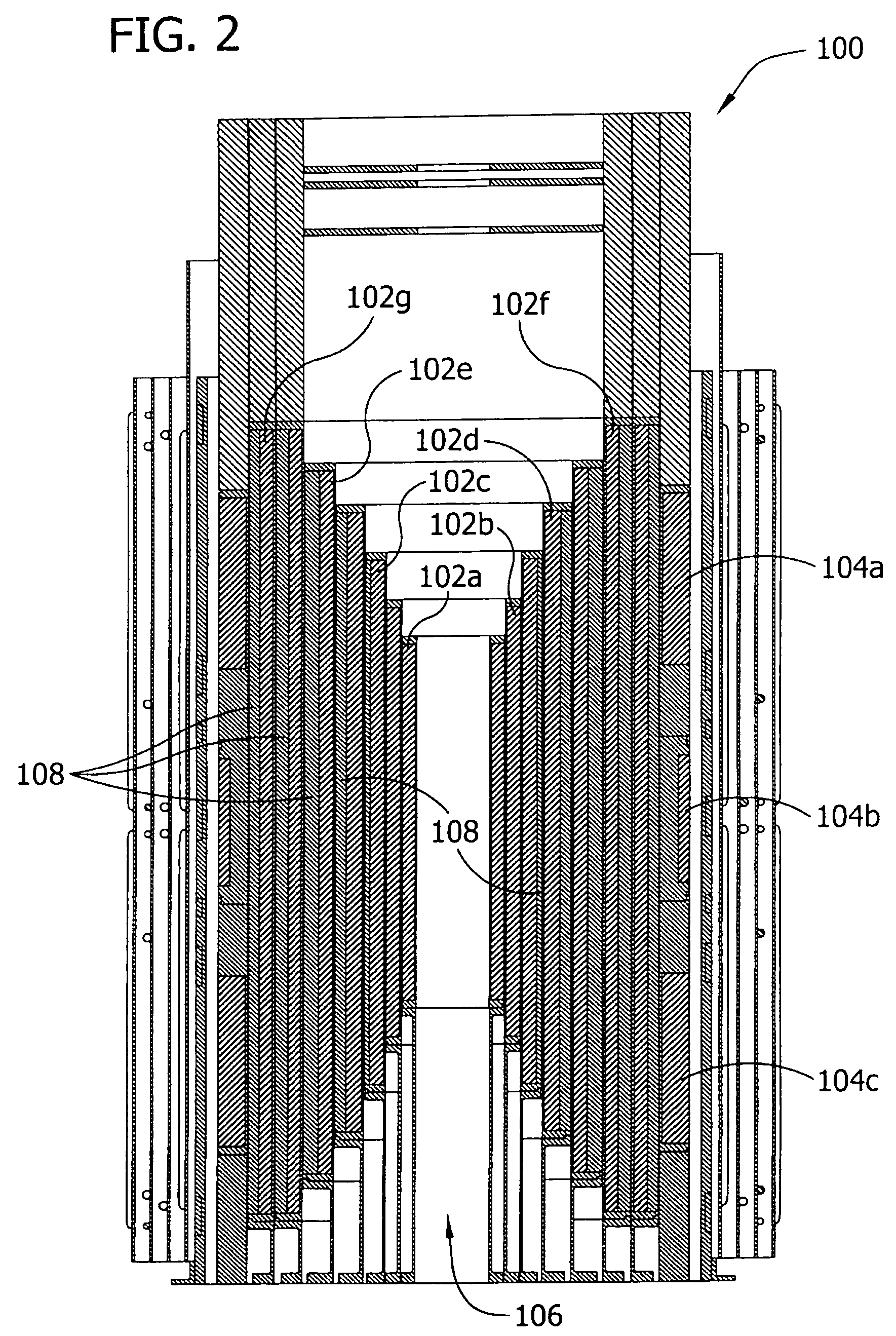Due to the high
stored energy of the 900 MHz
system and the associated large magnetic forces, however, the production of a successful
system is challenging.
The high field and large bore result in large mechanical stress in the coils and large magnetic
stored energy.
Ferromagnetic welds cause field inhomogeneity.
This strategy is problematic in fabricating high field magnets because
austenitic stainless steel is the preferred heat treatment material for bore tubes in Nb3Sn coils.
Bore tube removal is dangerous due to the risk of damaging the reacted Nb3Sn conductor and leads.
A major obstacle to producing a wide bore, high field magnet involves the relatively large mechanical stresses caused by the magnetic fields in the magnet.
Unfortunately, the materials normally found in high field superconductors are generally of low strength and the high temperature heat treatment and annealing to which such conductors are subject diminishes their strength even further.
Second, an
axial force at each end of the coil toward the center results in a pressure at the midplane of the coil and tends to make the coil shorter.
This construction has strength in the radial direction, against the expansion of the hoops formed by the reinforcement winding, but can be weak in the axial direction, where any spaces between the turns in the reinforcement winding reduce the stiffness in the axial direction.
The so-called A15 high field superconductors, including Nb3Sn, are used to produce coils with the highest fields and forces but also tend to be the most brittle and subject to damage from mechanical stress.
Unfortunately, the fabrication process for this type of coil places restrictions on the manner in which the reinforcement can be included in the design.
This requirement is not severe for a small coil, but as the size of the coil increases for higher field magnets, this
processing step becomes increasingly burdensome.
Furthermore, this situation makes it difficult to achieve a strong bond between the reinforcement and the coil winding because the reinforcement winding is being applied over a completed, epoxy impregnated winding.
Although applying the reinforcement winding over the conductor winding after heat treatment, but before epoxy impregnation, would solve the problem of the epoxy
bond strength, the conductor in the coil after heat treatment is sufficiently brittle that the application of the reinforcement before impregnation of the winding would present a large risk to the integrity of the conductor.
Therefore, this option is not available.
Adequate quench protection presents another obstacle to producing high field magnets.
Superconducting magnets are subject to a mode of failure, known as “quench,” in which the
stored energy is suddenly converted into heat accompanied by the presence of large electrical voltages.
If the region is of limited size, and all the energy of the magnet is deposited in the region, the
energy density is high and the region will be likely to overheat.
The excessive heat and
voltage during a quench can damage a magnet's windings.
Although systems are known for protecting the magnet from damage due to a quench fault condition, these conventional systems are not well-suited for high field superconducting magnets such as those desired for NMR.
Although this type of
protection system may be suitable for superconducting magnets that operate at relatively
high current in powered mode, an external dump of energy is not practical for NMR
spectrometer magnets that operate at relatively low current in persistent mode.
In this instance, the local region will overheat and be damaged if enough energy is available in the magnet.
Unfortunately, use of the shunt path to spread the quench only works for coil sections that are thermally connected.
Yet another problem associated with conventional magnet design involves the leads of the superconducting coil.
Mechanical stress on the lead wire extending from a coil, resulting from Local Lorentz forces or
relative motion between the coil and the surrounding support structure, for example, can damage the lead wire.
Moreover, certain known high field superconductors formed by a high temperature heat treatment are relatively brittle.
Thus, the amount of bending allowed by the superconductor is very limited after heat treatment.
 Login to View More
Login to View More 


